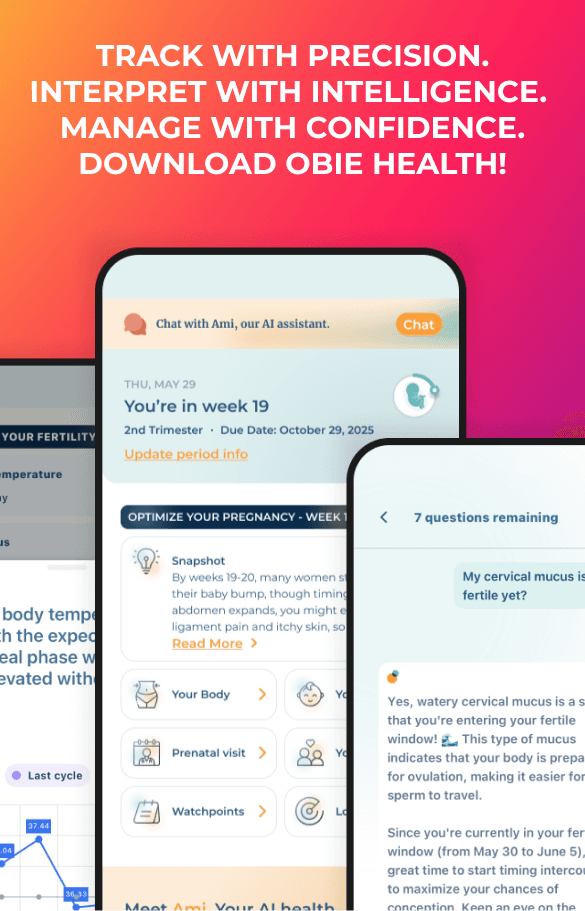Do I Have Morning Sickness or am I Sick?
Pregnancy
Obie Editorial Team

Morning sickness is a common symptom of pregnancy, but nausea can also be a sign of illnesses, like the flu or stomach virus. There are a few key differences between the two that can help pregnant women determine whether they should seek medical attention.
Is nausea the only symptom?
A huge difference between nausea associated with a virus and morning sickness is the appearance of multiple symptoms. If you have a fever or diarrhea with your nausea, there is a good chance you have something more than morning sickness. Fever can cause pregnancy complications and affect the fetus, so talk with your doctor if you are running a fever. If you have diarrhea with your nausea, there could be an underlying stomach virus or bout of food poisoning causing the problem. Again, talk with your physician to see if medication or further testing is needed.
Nausea continues despite medication
Some pregnant women experience morning sickness bad enough to require anti-nausea medication like Phenergan. If you are currently taking an anti-nausea medication and the medication has not curbed your morning sickness, you notice sudden changes in nausea, or your nausea suddenly returns, tell your doctor as soon as possible. This is especially important if there are other symptoms, including fever, chills, aches, and pains or diarrhea.
Have you been around someone with a stomach virus or flu?
If you know you came in contact with someone with a stomach virus or flu, you could have likely contracted the illness. The immune system of pregnant women is far less resilient than non-pregnant women. Just being in the same room with a person who has a stomach virus or flu could be enough to contract the illness.
Morning sickness can occur at any time of day, but it should not be associated with fever, cramping, diarrhea or other symptoms of illness.W hen in doubt, call your doctor.








